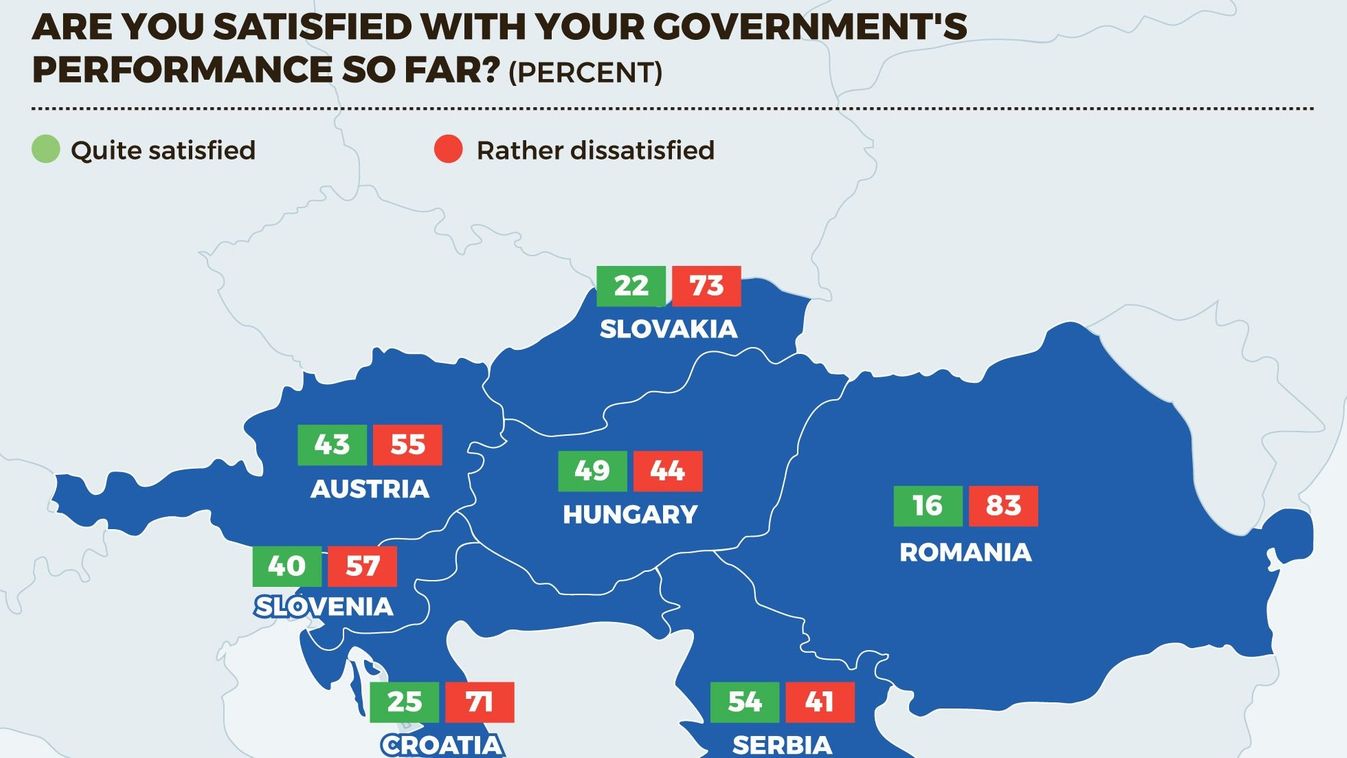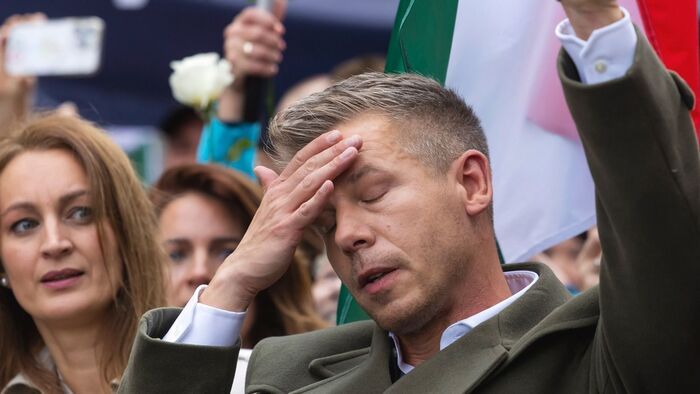The population is the most dissatisfied with their government's work in Slovakia (73 percent) and in Romania (83 per cent), while Serbs and Hungarians rate the performance of their country's leadership the highest, according to a poll by Nezopont Institute conducted in Hungary and neighboring countries.
Domestic political stability and trust in government in peacetime, but especially in times of international conflict are values that not all countries can claim, the analysts highlight. Today, the protracted Russia-Ukraine war is a constant challenge for almost the entire globe, but the countries in the Central European region face even greater difficulties, the researchers point out. The energy crisis, war-related inflation and the security challenges posed by the armed conflict have made it even more important for the governments in office to be stable and their activities accepted. Looking around the countries neighboring Hungary reveals a diverse picture regarding the opinion of their populations.
The study by the Nezopont Institute conducted over the summer months found that Romanians and Slovaks are the most dissatisfied with the performance of their governments among the countries in the region.

Change of government in the air in Slovakia
In Slovakia facing early elections following a government crisis, a change of government is expected, with seven out of ten people asked saying that they are dissatisfied with the performance of their country's leadership and only 22 percent expressing satisfaction.
Besides a change of government, what is at sate in the elections on September 30 is whether the party of the Hungarian community living in Slovakia will be able to pass the parliamentary threshold and become a balance of power factor in Slovakia.
Government not the most stable institution in Romania
The situation in Romania is even worse, survey findings reveal. Only 16 percent of those asked were positive about the cabinet's activities, while 83 percent said they were rather dissatisfied. However, in a semi-presidential system, where the president takes an active share in the executive power, the government is not conventionally considered the most stable institution.























Szóljon hozzá!
Jelenleg csak a hozzászólások egy kis részét látja. Hozzászóláshoz és a további kommentek megtekintéséhez lépjen be, vagy regisztráljon!